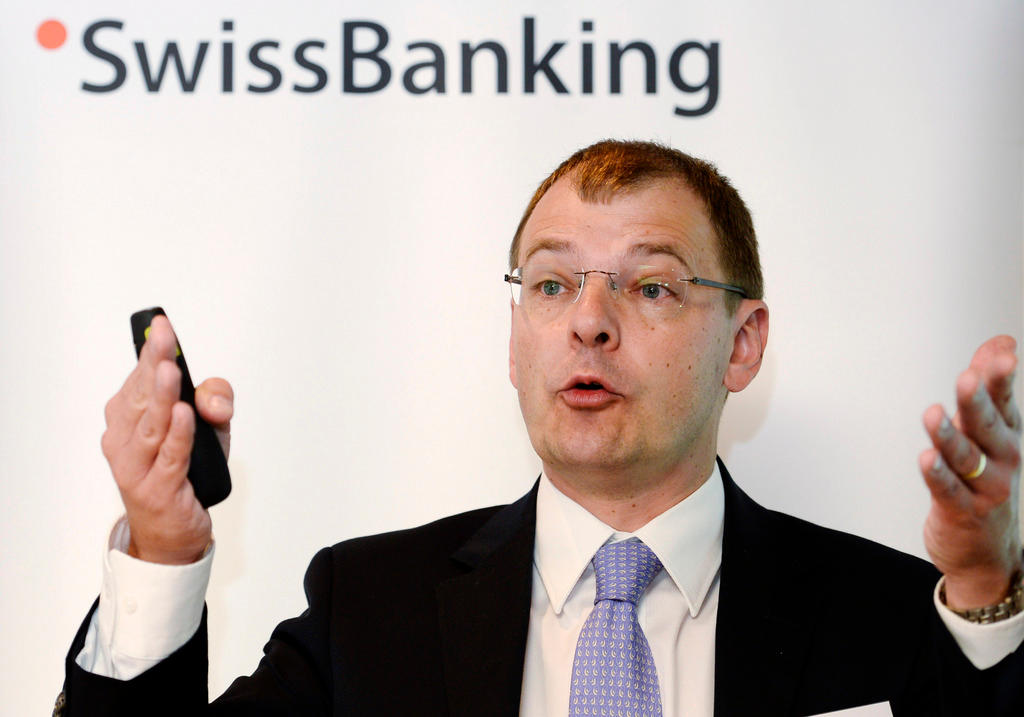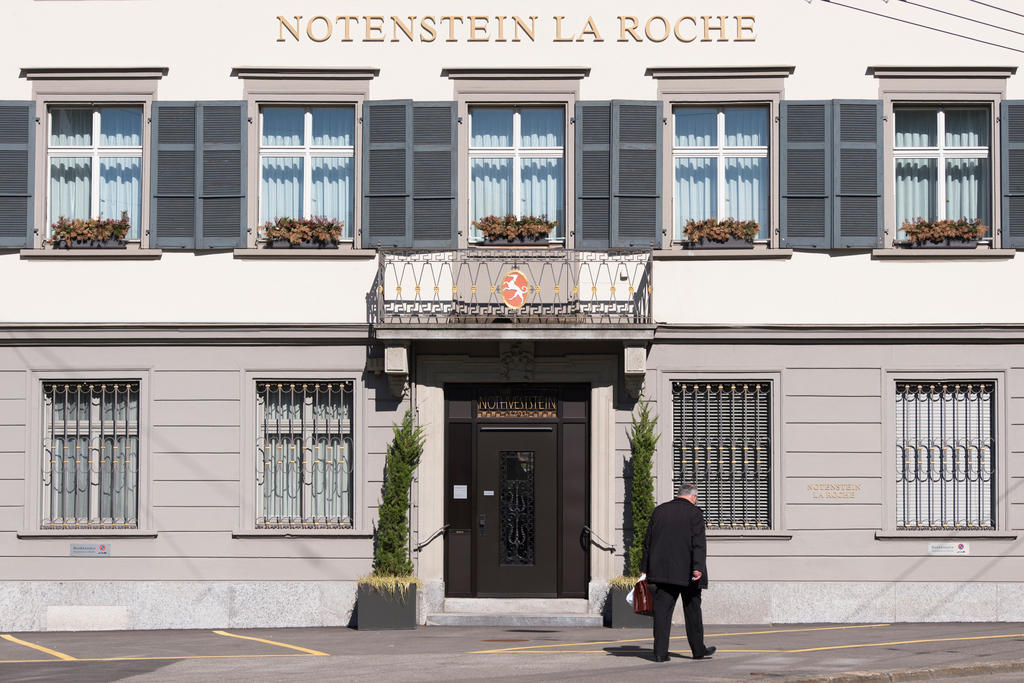Ongoing roadblocks stifle growth of Swiss banks

Swiss banks are withstanding the pressure of ongoing headwinds, but real progress continues to be stalled by political and economic roadblocks, the Swiss Bankers Association (SBA) said on Thursday.
Releasing its annual Banking Barometer, which measures the performance of the sector in 2017, the SBA found that aggregate profits (profits minus losses) across Switzerland’s 253 banks rose by nearly a quarter to CHF9.8 billion ($10.1 billion). Assets under management (AuM) also grew nearly 10% to reach CHF7.3 trillion.
“Even though the current environment is characterised by uncertainty, the signs are once again pointing towards growth,” stated SBA deputy CEO August Benz. “The performance of banks is therefore all the more impressive.”
But a closer look at the figures reveals stagnation rather than growth. Aggregate net profits were boosted by fewer banks being in the red as opposed to institutions generating more value for shareholders. Profitable banks actually posted less impressive results in 2017 compared to the year before.
In addition, the SBA admitted that AuM growth was boosted by better trading conditions rather than an increase in clients depositing their wealth at Swiss banks. This finding confirmed an earlier private banking study by KPMG and the University of St Gallen, which showed a disappointing haul of CHF21.3 billion in net new money last year.
Real progress for the sector is being hindered by geopolitical turbulence around the world, including the protracted Brexit situation, the SBA said. Furthermore, Switzerland’s efforts to realign its banking laws to meet European Union requirements for future access to the European market have yet to be concluded.
Staff relocated abroad
The threat of damaging trade disputes, mainly involving the United States, are also dampening economic markets. Banks continue to suffer from the continued negative interest rate policy in Switzerland, the SBA revealed.
Last year, Swiss banks paid CHF2 billion in negative interest rate charges – up CHF500 million from 2016.
Swiss banks supported 93,554 full time job positions in 2017, a fall of 7.7%. Part of this decline can be explained by eight banks leaving the Swiss market last year.
Swiss banking giants UBS had announced it would move around 1,000 back office staff to lower cost regions, such as Biel or Solothurn. Because these new offices are no longer technically banking centres, these staff were removed from the SBA bank staffing figures. Without this anomaly, staffing levels across the sector only dipped slightly.
The first half of 2018 saw full-time equivalent positions drop even further in Switzerland as staffing levels for Swiss banks increased abroad, the SBA said. A survey of banks found that only a third expected to hire more staff in the near future.

In compliance with the JTI standards
More: SWI swissinfo.ch certified by the Journalism Trust Initiative




You can find an overview of ongoing debates with our journalists here. Please join us!
If you want to start a conversation about a topic raised in this article or want to report factual errors, email us at english@swissinfo.ch.